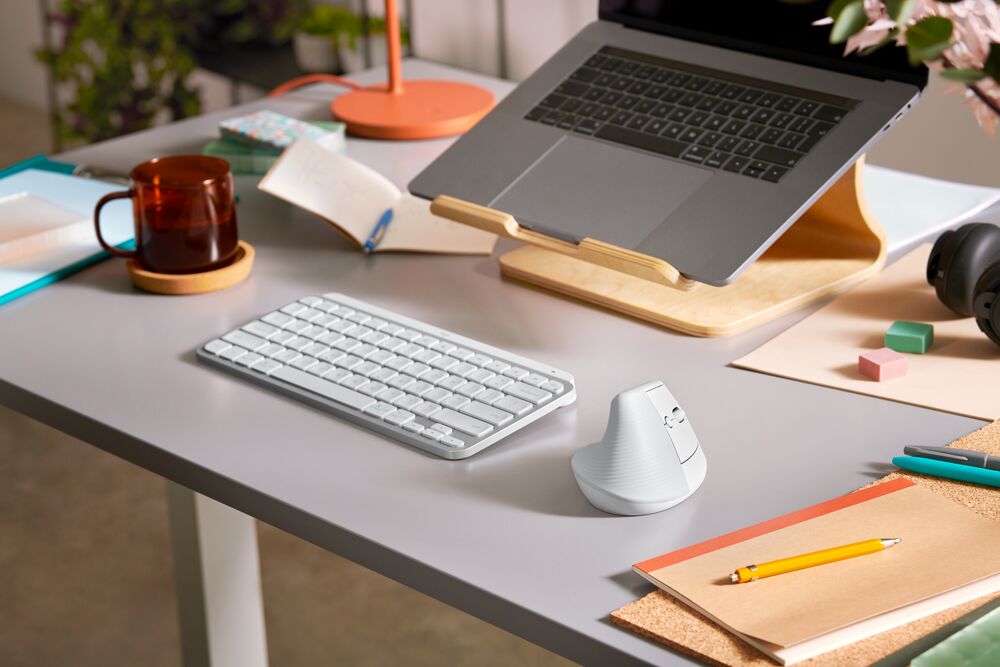According to Discovery Insure’s Work From Home Index, people physically travel between work and home three days a week. That means most workers typically work from home two days a week.
“Although we’re seeing a transition back to the office for most organisations, people are still spending a significant number of hours working from home, which could still include working from the dining table, the bedroom, or even the sofa,” says Theresa Relihan, Head of Marketing, sub-Sahara Africa for Logitech. “For that reason, it’s crucial that people implement and maintain healthy work habits when working from home. Working the typical long hours that most of us do without taking the necessary breaks or working in poor ergonomic workspaces results in less productivity and can lead to countless health problems.”
Here’s how you can create a healthy home workspace that not only keeps you healthy but will boost your productivity too:
Step away from your desk
Sitting for eight hours daily takes a physical and psychological toll! That’s why it’s so crucial that you take frequent breaks, preferably outside for a brisk walk. This physical and mental breather gives your body a chance to refresh itself and makes you more productive and creative when you return to your desk.
Switch things up
Consider changing your work position several times a day, especially if you’re guilty of slouching behind your computer screen for extended periods. By varying your position, from sitting to standing, you’ll give your body the necessary variation to keep going.
If you need a little motivation to get into this healthier working habit, you can vary your position by adapting it to your activity. For example, stand for meetings and calls. Investing in an adjustable sit/stand desk will make it even easier to adjust your position throughout the day – allowing you to change your centre of gravity in beneficial ways!
Take your eyes off your mails – they’re not going anywhere
It isn’t easy to focus on the task at hand when notifications are pinging from your phone, reminding you emails are piling up in your inbox. Thankfully, a range of handy focus assistance tools can significantly improve your productivity and sense of satisfaction.
For example, Microsoft’s Focus Assist allows you to manage distractions by minimising them, so it’s easier for you to focus on tasks. This tool will enable you to manage notifications or even use the Immersive Reader tool to minimise visual distractions. These tools will help you set aside short blocks of time for specific tasks, like writing a report.
Leave it at the office
In today’s connected world, it’s easy to bring your work home with you. Well, it’ll be better if you try not to. Being constantly connected to work at night and on weekends can have harsh effects on psychological health and even lead to burnout.
Instead, consider deleting the work email from your smartphone and leaving your laptop at the office to avoid temptation. Your family and friends will thank you for it!
Transform your workstation into an ergonomic workspace
Work stresses can affect the human body in more ways than we realise. For example, studies have found that heavy computer users perform three million keystrokes and move their mouse up to 27km each year. Additionally, 15% of computer users in the US experience pain or discomfort in the fingers, wrist, forearm, hand, shoulder, or elbow daily.
That’s why it’s crucial to incorporate work tools like an ergonomic mouse to improve your posture, lower muscle strain, and increase your comfort levels by realigning your hand into a more natural posture.
“We tend to overlook bringing well-being into our workplace, especially when working from home. However, we work better when we feel better, and adopting healthy work habits, introducing ergonomic work tools, and blocking out unnecessary distractions can have a massive impact on improving our sense of well-being,” says Relihan.
Provided by Logitech SA

























